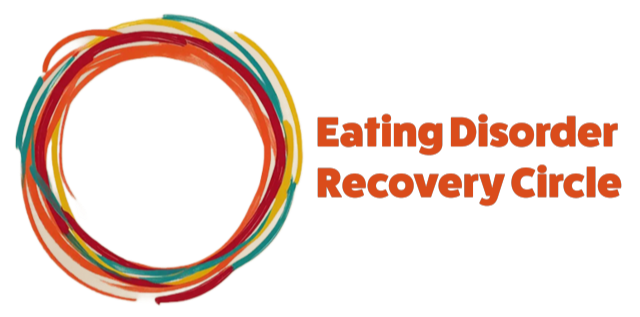How to Navigate Festivities & Special Events in Recovery
Mar 13, 2025Festivities and special events should be about joy, connection, and celebration—but in eating disorder recovery, they can feel like a minefield of triggers.
✔ “There’s too much focus on food—I feel overwhelmed.”
✔ “I know people will comment on my eating or my body.”
✔ “I’m afraid of losing control or feeling guilty afterward.”
Whether it’s a family gathering, birthday, wedding, or festive celebration, these moments can bring social pressure, diet talk, and disrupted routines. But you do not have to just ‘survive’ them—you can navigate them in a way that protects your recovery.
For in-depth guidance, check out the Navigating Celebrations & Events in Recovery Mini-Course inside The Circle’s course library. (coming soon)
Step 1: Set Realistic Expectations—Perfection is Not the Goal
🚫 You do not need to ‘get it right’ to have a successful festive event.
✔ It’s okay if you feel uncomfortable—discomfort does not mean failure.
✔ It’s okay if eating feels harder than usual—recovery is not about perfection.
✔ It’s okay if you need extra support—these events can be challenging.
💡 You are allowed to show up exactly as you are.
📌 If you need extra reassurance, check the Feelings Navigator for self-compassion tools.
Step 2: Plan for the Challenges You Expect
Festivities and events can feel overwhelming because they involve uncertainty. Having a plan can make them feel more manageable.
✔ Ask yourself:
- What specific challenges am I most worried about?
- How do I want to respond if those challenges arise?
- Who can I lean on for support?
✔ Common challenges and solutions:
- Fear of ‘too much food’ → Remember, your body knows what to do with food.
- Unhelpful comments about eating → Set boundaries or change the subject.
- Disrupted routines → Recovery is about flexibility, not rigid rules.
💡 Having a plan is helpful—but you don’t have to control everything.
📌 For more structured strategies, take the Navigating Celebrations & Events in Recovery Mini-Course inside The Circle. (coming soon)
Step 3: Set Boundaries Around Conversations That Make You Uncomfortable
🚫 You do not have to tolerate diet talk, body comments, or food guilt from others.
✔ If someone makes a comment about your plate:
- “I’m listening to my body, and this is what I want to eat.”
- “I’d rather focus on enjoying the meal than overanalyzing food.”
✔ If someone talks about diets or weight loss:
- “I’m not interested in diet talk—let’s talk about something more fun.”
- “I’m focusing on enjoying food, not restricting it.”
✔ If someone questions your recovery:
- “I appreciate your concern, but my recovery choices are personal.”
- “I don’t need to justify my eating—I’m working on trusting my body.”
💡 Setting boundaries is an act of self-care, not rudeness.
📌 If boundary-setting feels challenging, check the Feelings Navigator for confidence-boosting tools.
Step 4: Remember That One Meal Does Not Change Your Progress
🚫 Your eating disorder may try to convince you that one event, one meal, or one day will ‘ruin everything.’
✔ But the truth is:
- One meal is just one meal—it will not undo your recovery.
- Your body will handle whatever you eat, just like it always has.
- The memories of the event will last longer than the food—focus on the experience.
💡 You deserve to enjoy celebrations without guilt.
📌 If post-meal guilt arises, check the Feelings Navigator for support.
Step 5: Have a Support System in Place
✔ If possible, tell a trusted friend or family member how they can support you.
✔ If you’re attending alone, plan a check-in with someone afterward.
✔ If you need encouragement, reach out inside The Circle before or after the event.
🚀 You do not have to go through this alone. Support makes all the difference.
📌 For extra strategies on handling celebrations, work through the Navigating Celebrations & Events in Recovery Mini-Course inside The Circle’s course library. (coming soon)
Step 6: If You Struggle, Show Yourself Compassion
✔ If the event is hard, that’s okay—it doesn’t mean you’ve failed.
✔ If you struggle with food, you can still keep going.
✔ If you feel guilt afterward, remind yourself: You are still in recovery, and that is enough.
🚀 Recovery is built on progress, not perfection. Keep going.
📌 If post-event anxiety lingers, talk it through inside The Circle.
When to Seek Extra Support
If festivities and events feel too overwhelming, triggering, or exhausting, you don’t have to navigate them alone.
🔹 A therapist or recovery coach can help you build a strategy.
🔹 Others inside The Circle can share what’s helped them.
🔹 You deserve to be part of celebrations—without fear, without guilt, and without restriction.
Next Steps
🎯 If upcoming events feel overwhelming, check the Feelings Navigator for coping tools.
🎯 For structured guidance, take the Navigating Celebrations & Events in Recovery Mini-Course inside The Circle’s course library.
🎯 Engage in discussions inside The Circle to hear from others who have managed festivities in recovery.
Final Reminder
🚀 You are allowed to enjoy celebrations. You are allowed to eat. You are allowed to be present without fear.
Festivities and special events are meant to be lived and enjoyed—not controlled by food rules.
You deserve to be fully present, fully nourished, and fully free. ❤️

